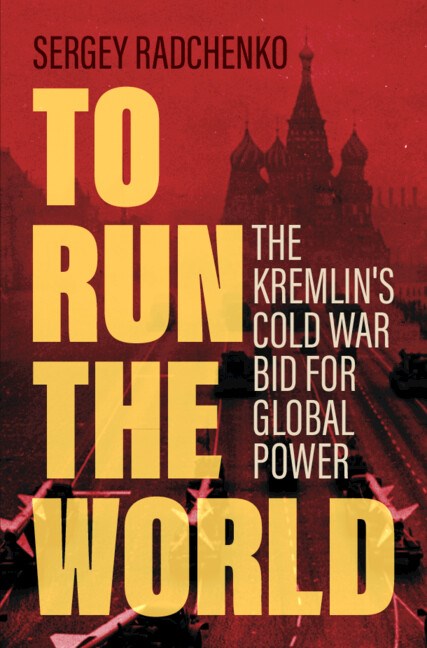2018 School Spending Survey Report
To Run the World: The Kremlin’s Cold War Bid for Global Power
COPY ISBN
 Historian Radchenko (global affairs, Johns Hopkins Sch. of Advanced International Studies; Unwanted Visionaries) provides a fresh and deeply researched history of Soviet foreign policy. His engaging and narrative, sometimes presented with a dose of irony, begins in 1945. It features a massive trove of recently available material, mostly official sources from the former Soviet Union, China, and the United States. The author says these powers shaped Soviet policy through more derivative actors, such as Willy Brandt and Ho Chi Minh. Personal relationships among Soviet leaders, with their allies and adversaries, such as Mao Zedong and Kim Il-Sung, revealed little known episodes, such as the impact of destalinization. From Stalin through Gorbachev, the book shows remarkably similar strategic objectives, such as power and international status. Radchenko gives less attention to some areas, including the Balkans. He makes the case that it was Gorbachev’s “new thinking,” driven by the restructuring of economic and political systems, that ended the Cold War.
Historian Radchenko (global affairs, Johns Hopkins Sch. of Advanced International Studies; Unwanted Visionaries) provides a fresh and deeply researched history of Soviet foreign policy. His engaging and narrative, sometimes presented with a dose of irony, begins in 1945. It features a massive trove of recently available material, mostly official sources from the former Soviet Union, China, and the United States. The author says these powers shaped Soviet policy through more derivative actors, such as Willy Brandt and Ho Chi Minh. Personal relationships among Soviet leaders, with their allies and adversaries, such as Mao Zedong and Kim Il-Sung, revealed little known episodes, such as the impact of destalinization. From Stalin through Gorbachev, the book shows remarkably similar strategic objectives, such as power and international status. Radchenko gives less attention to some areas, including the Balkans. He makes the case that it was Gorbachev’s “new thinking,” driven by the restructuring of economic and political systems, that ended the Cold War.
VERDICT A remarkably balanced, brilliant, ambitious, durable work of scholarship, combining histories of the Cold War with Soviet foreign policy. A good read-alike is Adam Ulam’s Expansion and Coexistence: The History of Soviet Foreign Policy, 1917–67.
0 COMMENTS
Comment Policy:
- Be respectful, and do not attack the author, people mentioned in the article, or other commenters. Take on the idea, not the messenger.
- Don't use obscene, profane, or vulgar language.
- Stay on point. Comments that stray from the topic at hand may be deleted.
- Comments may be republished in print, online, or other forms of media.
- If you see something objectionable, please let us know. Once a comment has been flagged, a staff member will investigate.
RELATED
ALREADY A SUBSCRIBER? LOG IN
We are currently offering this content for free. Sign up now to activate your personal profile, where you can save articles for future viewing



